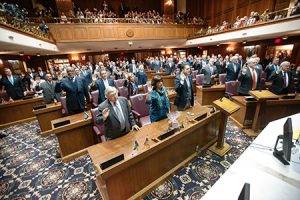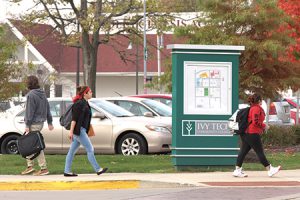
State’s dubious vaping law to get big overhaul
Sen. Randy Head of Logansport said he will file a bill to “stop the monopoly” that was created by legislation passed in 2015 and amended in 2016, which essentially put one private security firm in charge of deciding which firms could manufacture the “juice” used in e-cigarettes sold in Indiana.







